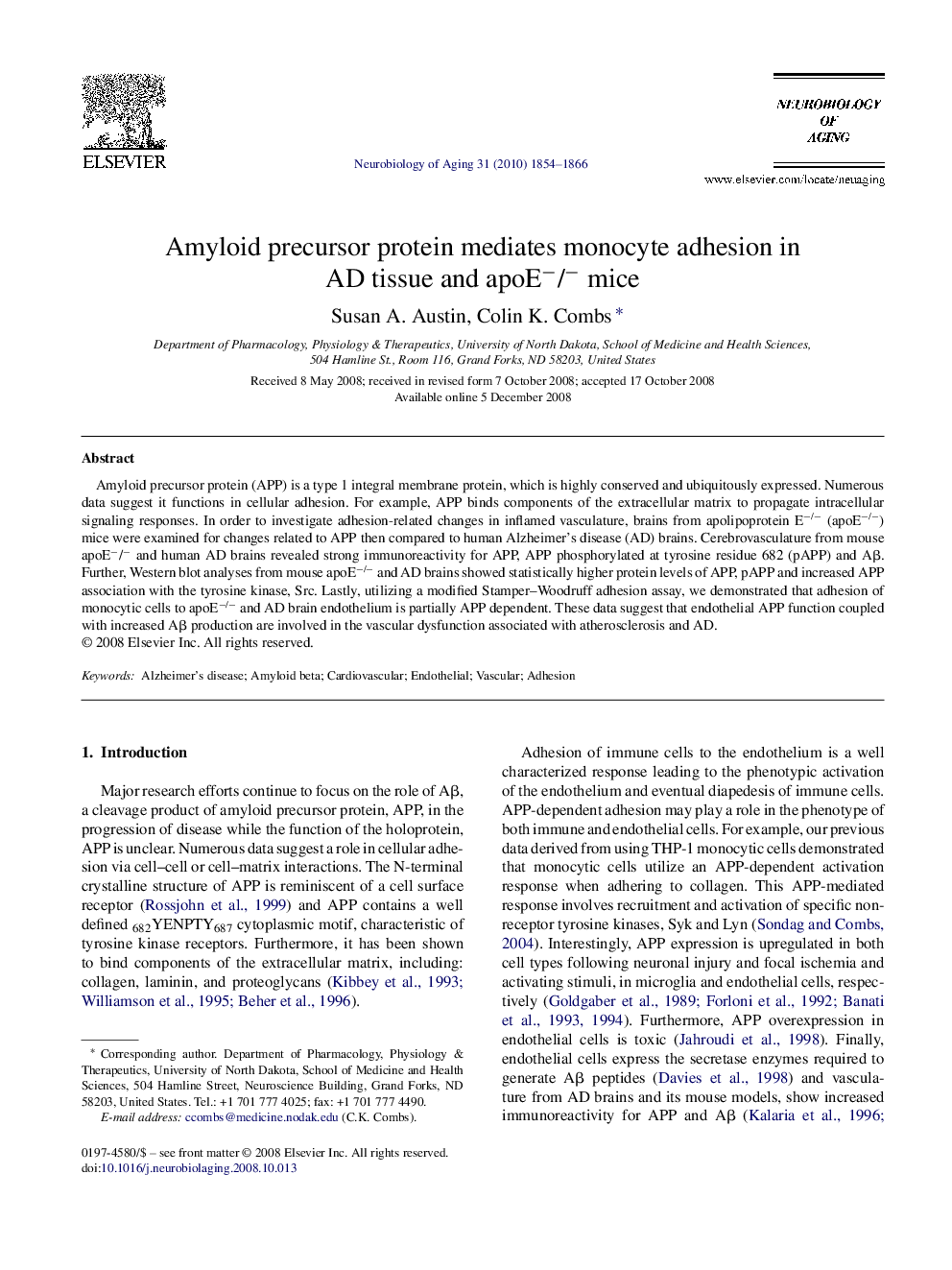| Article ID | Journal | Published Year | Pages | File Type |
|---|---|---|---|---|
| 329310 | Neurobiology of Aging | 2010 | 13 Pages |
Amyloid precursor protein (APP) is a type 1 integral membrane protein, which is highly conserved and ubiquitously expressed. Numerous data suggest it functions in cellular adhesion. For example, APP binds components of the extracellular matrix to propagate intracellular signaling responses. In order to investigate adhesion-related changes in inflamed vasculature, brains from apolipoprotein E−/− (apoE−/−) mice were examined for changes related to APP then compared to human Alzheimer’s disease (AD) brains. Cerebrovasculature from mouse apoE−/− and human AD brains revealed strong immunoreactivity for APP, APP phosphorylated at tyrosine residue 682 (pAPP) and Aβ. Further, Western blot analyses from mouse apoE−/− and AD brains showed statistically higher protein levels of APP, pAPP and increased APP association with the tyrosine kinase, Src. Lastly, utilizing a modified Stamper–Woodruff adhesion assay, we demonstrated that adhesion of monocytic cells to apoE−/− and AD brain endothelium is partially APP dependent. These data suggest that endothelial APP function coupled with increased Aβ production are involved in the vascular dysfunction associated with atherosclerosis and AD.
